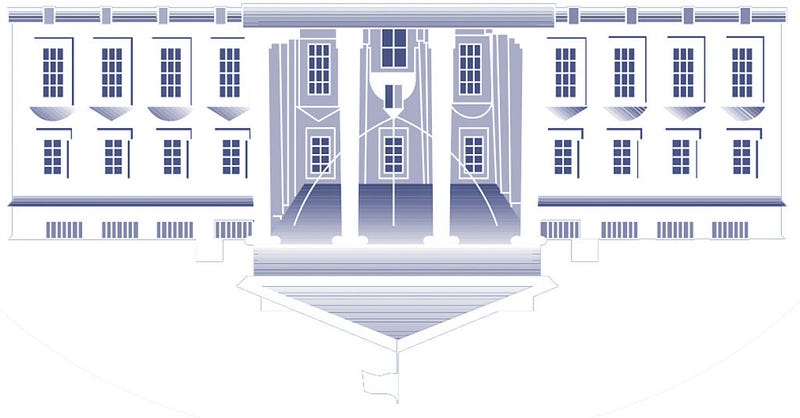As Trump turns the White House upside down, Bay Area residents join the country in shows of resistance

The tumultuous first week of Donald Trump’s presidency forged solidarity between what might seem like unlikely and unexpected groups of Americans: cab drivers, bodega owners, climate scientists, park rangers, and federal judges all found themselves fighting for their rights and those of their loved ones.
The resistance began not unlike Trump’s own rise to the presidency: with a series of tweets.
On Jan. 24, the Twitter account representing the Badlands National Park began releasing crucial and undisputed facts about climate change.
The tweets seemingly were a response to Trump’s declaration that all grants and contracts by the Environmental Protection Agency (EPA) would be frozen, and that its employees were thereby banned from providing updates about those grants and regulations on social media.  Trump has been a noted climate change skeptic since at least the start of his candidacy, even going so far as to call climate change a “hoax” invented by the Chinese. Trump’s pick for the new head of the EPA has also been labeled a climate change denier.
Trump has been a noted climate change skeptic since at least the start of his candidacy, even going so far as to call climate change a “hoax” invented by the Chinese. Trump’s pick for the new head of the EPA has also been labeled a climate change denier.
Thus, the climate change tweets seemed to be an act of defiance, and were swiftly taken down by Badlands National Park officials. Refusing to see scientific information silenced, anonymous Twitter users claiming to be employees of the National Park Service began tweeting under “rogue” Twitter accounts.
They used their platform both to speak out against Trump and provide the public with the information that might become censored under a Trump administration.
Soon, other “rogue” accounts followed. Some of these accounts include: @ActualEPAFacts
@ActualEPAFacts
@alt_fda
@RogueNASA
@RogueNOAA
@AltUSNatParkSer
@RoguePOTUSStaff
This last one is one of the newest and most controversial accounts, claiming to speak on behalf of a group of staffers within the White House.
But it seems the activism of these scientists won’t stop at the edges of the Twittersphere.
On Jan. 25, a team of scientists declared that they were organizing a march on Washington, D.C. inspired by the recent Women’s March on Washington (see our coverage starting on page 1) and hoping to combat the anti-science attitude of the Trump administration.
The march has been set for April 22 to coincide with this year’s Earth Day. (More information can be found at marchforscience.com.)
But scientists were only one part of the resistance that has grown rapidly since Inauguration Day.
On Jan. 27, Trump issued an executive order on immigration that was so targeted, many called it an effective “Muslim ban.”
The order set a 120-day suspension of the refugee program that had been bringing in fleeing victims of political conflict abroad to be resettled in the United States.
It also established a 90-day ban on entry to the U.S. for any Iraqi, Iranian, Syrian, Libyan, Yemeni, Somali, and Sudanese citizens.
See our table below for more details, as well as resources, for those affected by the order.
Trump’s declaration left hundreds of immigrants and foreign nationals in limbo for the weekend, including many refugees who had already received clearance to emigrate to the U.S.
Some were actually left stranded in the U.S. airports to which they’d been flying when the order was issued, prompting major protests across the country at international airports.
The international terminal of the San Francisco Airport was inundated with thousands of protesters over the course of Jan. 27 and 28, demanding the release of those immigrants trapped inside.
In New York, blocks of immigrant populations banded together in solidarity with the victims of Trump’s actions.
The New York Taxi Workers Alliance, a taxi drivers union, went on strike over that weekend. On Feb. 1, almost 1,000 store owners across New York City declared they would close their bodegas in protest as well.
Lawyers from the American Civil Liberties Union also stood up to Trump’s executive order by challenging it in a number of jurisdictions, often by doing the necessary work on the floors of the airports where their clients were being held.
Because of their work, several federal judges issued stays or declarations that limited and delayed the effects of the order.
This legal solidarity rattled up the judicial ladder as Acting Attorney General Sally Yates ordered the Justice Department not to defend the order because it was not “wise or just.”
Trump called the move a betrayal, and swiftly fired Yates, yet another aggressive move by an administration fighting rebellions at every turn.
Their fight, it seems, will rage on: in the courts, the streets, and across the country.
TRUMP’S EXECUTIVE ORDER ON IMMIGRATION
President Donald Trump shocked the world on Jan. 27 by issuing an executive order temporarily barring immigration
from seven Middle Eastern countries. Although judges in several states are challenging the order’s legality and
some federal officials are refusing to enforce it, here’s the need-to-know information for those affected.
The ban affects citizens from: Iran Iraq Libya Somalia Sudan Syria Yemen
If you are a U.S. citizen: You cannot be deported or banned from re-entry if you leave the U.S. But you might be asked more questions or screened more carefully. Your social media may be examined.
If you are not a U.S. citizen: It is strongly recommended that you consult an immigration lawyer before you make plans to travel internationally. Look below for info on legal resources in the Bay Area.
If you have a greencard or Legal Permanent Resident (LPR): Consult an immigration lawyer before you make plans to travel internationally. Look below for info on legal resources in the Bay Area. Do not sign the I-407 form, even under pressure. If you do, you will lose your greencard.
If you are undocumented: Do not open the door for law enforcement. Ask to see a warrant. You can ask them to slip the warrant under the door. Tell them to contact your attorney if you have one. Have documents and numbers ready in case of deportation.
If you are a student or worker: The order calls for a 90-day ban on re-entry into the U.S. if you leave. Contact an immigration attorney (see below) to see if you’re eligible for a waiver.
Legal resources
ACLU of Northern California
(415) 621–2488 (se habla espanol)
Mo/Tu/Th/Fr: 10 AM to 12 PM, 1 PM to 3 PM
Wed: 10 AM to 12 PM, 1 PM to 2 PM
East Bay Community Law Center
(510) 548–4040
Mon to Fri: 9 AM to 5 PM
If no answer, leave a voicemail at extension 395 with name, phone number, and questions
Peer counseling
Berkeley Free Clinic
Drop in hours, Mon to Fri: 6:30 PM to 8:30 PM, 60 min. sessions
Saturday: 12 PM to 2:30 PM, 30-min. sessions for women, trans and gender non-conforming folks
Online resources
ACLU Deportation Preparedness Kit
http://bit.ly/2k0QFJt
#MuslimBan Resource Guide
http://bit.ly/2jRVmoU

























